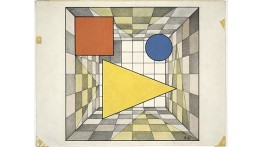In-Class Lectures | (Uncertain) Foundations

(Uncertain) Foundations seminar, conceived by the Cooper Union professor Anna Bokov, focuses on methods, underpinnings, and objectives of foundational training in architecture. Structured as a forum that brings together scholars, practitioners, and the student community, it aims to evaluate inherited models, discuss the current state of knowledge, and speculate about future challenges of what is, arguably, the most formative moment in one’s education. Each session presents a conversation on foundational pedagogy with invited protagonists.
Sessions are on Wednesdays at 6:30-7:30 pm.
Zoom https://cooper.zoom.us/j/4530150279
Hybrid session will take place in Room 315 and on Zoom
SPEAKERS & DATES
02.02.22 Joan Ockman (zoom)
02.09.22 Anthony Vidler (zoom)
02.16.22 Mersiha Veledar (hybrid)
02.23.22 Eva Franch i Gilabert (zoom)
03.09.22 Diana Agrest (hybrid)
03.23.22 Jean-Louis Cohen (hybrid)
03.30.22. James Lowder & Kayla Montes de Oca (hybrid)
04.06.22 Scott Ruff (Zoom)
04.13.22. Peter Eisenman (Zoom)
04.20.22 Nader Tehrani (hybrid)
04.27.22 Hayley Eber & Elizabeth O'Donnell (hybrid)
These lectures are open to current Cooper Union students, faculty, and staff in person and through Zoom.




